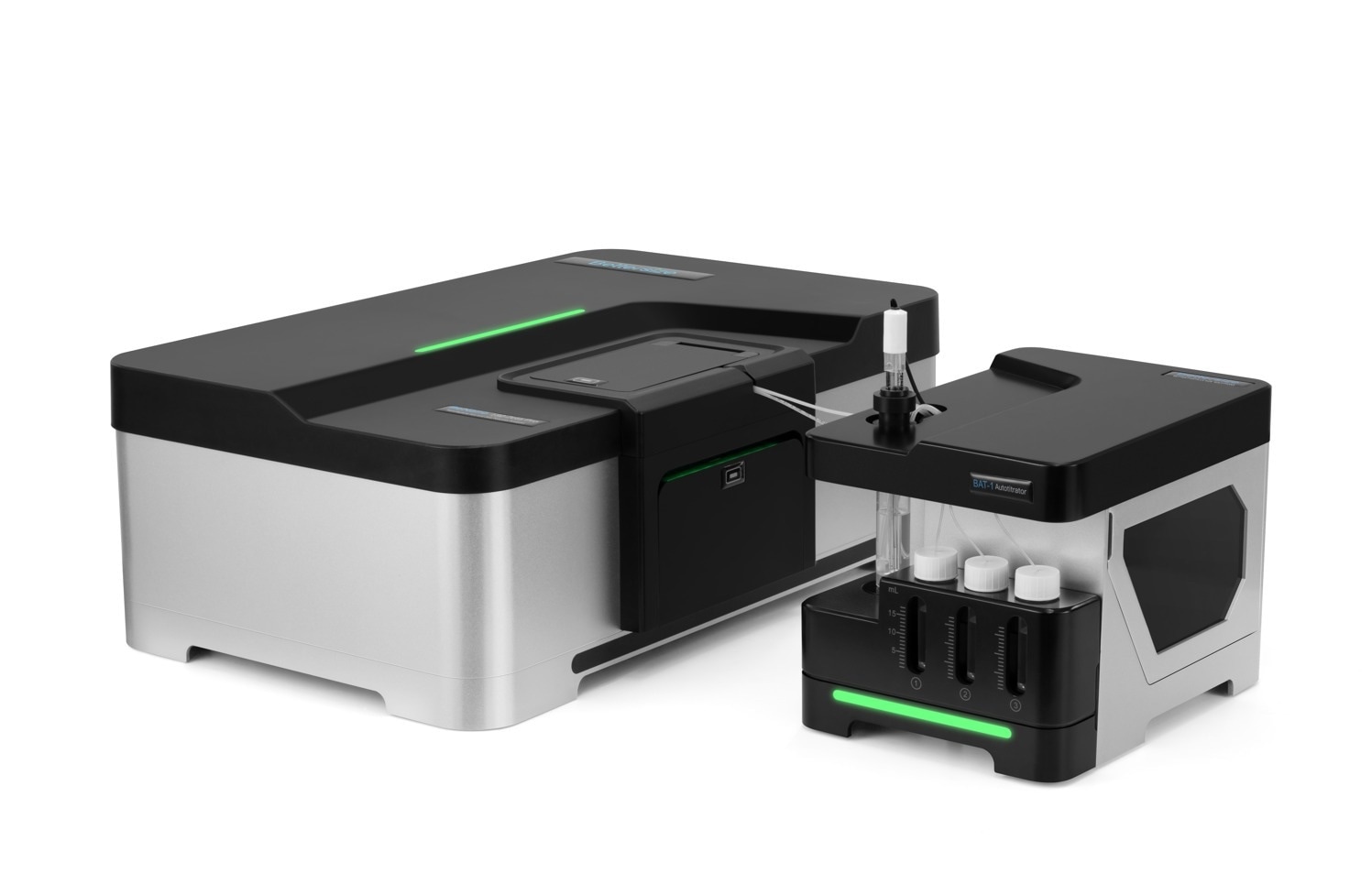The BeNano 90 Zeta is the latest generation of nanoparticle size and zeta potential analyzer designed by Bettersize Instruments. The system is integrated with dynamic light scattering (DLS), electrophoretic light scattering (ELS), and static light scattering (SLS) to deliver accurate measurements of particle size, zeta potential, molecular weight, and rheological properties. Now with The BAT-1 Autotitrator, for analyzing the zeta potential as a function of pH and determining the isoelectric point (IEP) of a colloidal system.
The BeNano 90 Zeta analyzer is widely utilized in academic and manufacturing processes of various fields, like pharmaceuticals, chemistry, biology, food, materials, chemical engineering, etc.
BeNano Series: Unveiling the Secrets of Nanoparticle Analysis
Video Credit: Bettersize Instruments Ltd.
Features and Benefits
- High-performance He-Ne laser — exceptional stability, long-lasting, minimum maintenance cost and high power
- Sensitive optical fiber detection system — excellent sensitivity of the optical system effectively increases signal-to-noise ratio
- Rapid measurement capability — editable results and faster operations
- Phase analysis light scattering — measures low electrophoretic mobility and zeta potential
- Smart intensity adjustment — the intensity can be effectively modified as per the signal-to-noise ratio
- Capillary sizing cell — higher measurement accuracy for huge particles and sample volume down to 3 to 5 μL
- Disposable folded capillary cell — provides excellent repeatability of zeta potential measurements and avoids cross-contamination
- Multipurpose calculation modes — various incorporated calculation modes cover many application and scientific research fields
- Smart algorithm for result assessment — smart evaluation and processing of signal quality avoid the impact of random events
- A wide range of temperature control — variable temperature ranges from −10 °C to 110 °C to satisfy different measurement requirements and allow the thermal stability analysis of samples
- Highly stable optical design — does not require regular maintenance and provides highly repeatable results
BAT-1 Autotitrator
The BAT-1 Autotitrator is equipped with three high-precision titration pumps (with precision of 0.28 μL), and a magnetic stirrer, and is in combination with the BeNano series nanoparticle size and zeta potential analyzer for automatic acid-base titration and determination of isoelectric point (IEP). The pinch valve can close the circuit of the sample during the measurement, leading to high efficiency, accurate titration, good repeatability and the results being independent of operators. The disposable sample container can avoid the sample cross-contamination.

Image Credit: Bettersize Instruments Ltd.
A Research-Level Software

Image Credit: Bettersize Instruments Ltd.
The BeNano series contains software with a user-friendly interface, many types of report pages as well as result previews.
Software Features
- Standard operating procedure (SOP) guarantees the precision and completeness of parameters at the time of measurements
- Results and statistics — mean and standard deviation can be automatically calculated
- Measurement interface reveals live data and results of numerous types
- Offers more than 100 parameters, fully covering the requirements for research, production, QC, and QA
- Life-long upgrades are offered at no extra cost
- Statistics and overlay — compare results from various runs
Applications with DLS Technique
- Research on polymerization process and reaction mechanisms
- Research on thermal-sensitive systems, for example, PNIPAm
- Studies on the kinetics of self-assembly and other processes of depolymerization and polymerization of macromolecules
- Particle size and distribution of biomacromolecules, polymers, colloids, self-assembling system, proteins, peptides, antigens, antibodies and non-metal and nano-metal particles
Applications with ELS Technique
- Electrophoretic mobility, zeta potential and their distributions of suspension systems, such as colloids, emulsions, antibodies, macromolecules, antigens, proteins, coal-water slurries and non-metal and nano-metal particles
- Sectors include but are not limited to chemicals, biology, pharmaceuticals, chemical engineering, abrasive and paints, food and beverage, water treatment, and environmental protection
- Monitoring and controlling product stability
- Studies on surface modifications and surface electrical characteristics
- Stability research and control of suspension systems
Applications with SLS Technique
- Pharmaceuticals — studies on aggregation and stability of medications
- Petroleum engineering — characterization of macromolecule additives and oil-displacing surfactants
- Verification of supermolecules and research on self-assembling aggregates
- Chemical engineering — characterization of micelles, supermolecules and polymers
- Life science — characterization of proteins, polypeptides and polysaccharides